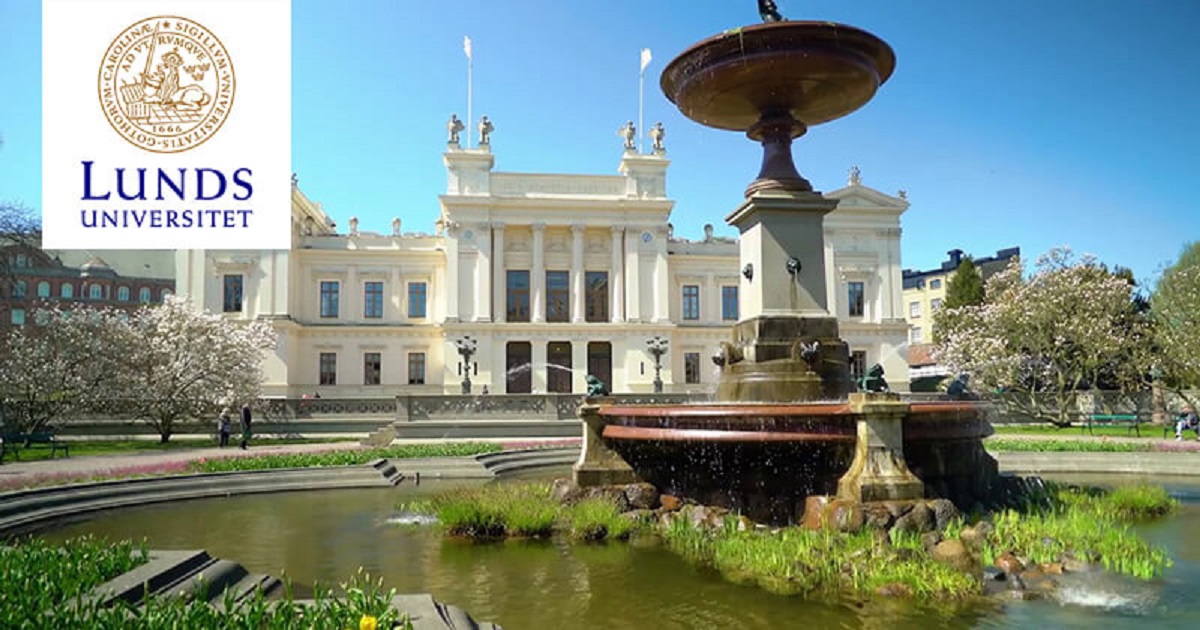Doctoral student in Software Engineering to explore software engineering methods to promote trustworthy AI for cyber-physical systems
Lund University was founded in 1666 and is repeatedly ranked among the world’s top 100 universities. The University has around 44 000 students and more than 8 000 staff based in Lund, Helsingborg and Malmö. We are united in our efforts to understand, explain and improve our world and the human condition.
Lund University welcomes applicants with diverse backgrounds and experiences. We regard gender equality and diversity as a strength and an asset.
Subject description
This project aims to explore software engineering methods and tools to promote trustworthy AI for cyber-physical systems (CPS). The research approach includes 1) empirical studies of industrial practice and related regulatory frameworks for AI systems, and 2) design of methods and tools to enable trustworthy AI by design. The project particularly focuses on quality assurance (QA) of machine learning (ML) systems in the context of MLOps, i.e. the combination of ML, DevOps, and Data Engineering in highly automated development pipelines.
From a QA perspective, ML constitutes a paradigm shift compared to conventional software, both in its uncertainties (probabilistic rather than deterministic outcomes) and its dual dependency on data and source code. Thus, the MLOps pipelines must be composed of engineering tools that support QA accordingly. Further, we want to transfer MLOps concepts into CPS. i.e. digitally controlled physical systems, such as autonomous vehicles and robots.
The doctoral student position is part of the Wallenberg AI, Autonomous Systems and Software Program (WASP), which is a large research programme on autonomous systems and software, involving multiple disciplines at multiple Swedish universities and close collaboration with industry. Doctoral students participate in a national research school and international study trips and exchange.
Work duties
The PhD position consists of three main aspects:
- research project, including trips to conferences, seminars etc.,
- postgraduate courses, locally and internationally given (90 credits), and
- teaching (at most 20%), including lab supervision and exam responsibilities. This part also involves professional development working with equality and diversity, arranging events etc.
Admission requirements
A person meets the general admission requirements for third-cycle courses and study programmes if the applicant:
- has been awarded a second-cycle qualification, or
- has satisfied the requirements for courses comprising at least 240 credits of which at least 60 credits were awarded in the second cycle, or
- has acquired substantially equivalent knowledge in some other way in Sweden or abroad.
A person meets the specific admission requirements for third cycle studies in Computer Science if the applicant has:
- at least 60 second-cycle credits at an advanced level (comparable to master level) that are relevant for this this topic, or
- or M.Sc. degree within computer science, Electrical Engineering, Information and communication Technology, Engineering Physics or mathematics.
Additional requirements:
- Very good knowledge about software engineering theory and practice
- Very good knowledge about machine learning
- Very good oral and written proficiency in English
- The ability to work both independently and in small teams
Assessment criteria
Selection for third-cycle studies is based on the student’s potential to profit from such studies. The assessment of potential is made primarily on the basis of academic results from the first and second cycle. Special attention is paid to the following:
- Knowledge and skills relevant to the thesis project and the subject of study.
- An assessment of ability to work independently and to formulate and tackle research problems.
- Written and oral communication skills.
- Other experience relevant to the third-cycle studies, e.g. professional experience.
Other assessment criteria:
- Relevant industrial experience
- Open source software contributions
- Software development skills and experience with the Python ML Ecosystem
- ML development and engineering for computer vision
Consideration will also be given to good collaborative skills, drive and independence, and how the applicant, through his or her experience and skills, is deemed to have the abilities necessary for successfully completing the third cycle programme.
Terms of employment
Only those admitted to third cycle studies may be appointed to a doctoral studentship. Third cycle studies at LTH consist of full-time studies for 4 years. A doctoral studentship is a fixed-term employment of a maximum of 5 years (including 20% departmental duties). Doctoral studentships are regulated in the Higher Education Ordinance (1993:100), chapter 5, 1-7 §§.
Instructions on how to apply
Applications shall be written in English and include a cover letter stating the reasons why you are interested in the position and in what way the research project corresponds to your interests and educational background. The application must also contain a CV, degree certificate or equivalent, and other documents you wish to be considered (grade transcripts, contact information for your references, letters of recommendation, etc.).
Don’t delay your application since we want to start interviewing as soon as possible.
LTH forms the Faculty of Engineering at Lund University, with approximately 9 000 students. The research carried out at LTH is of a high international standard and we are continuously developing our teaching methods and adapting our courses to current needs.
We kindly decline all sales and marketing contacts.
| Type of employment | Temporary position longer than 6 months |
|---|---|
| First day of employment | 2023-01-01 |
| Salary | Monthly salary |
| Number of positions | 1 |
| Working hours | 100% |
| City | Lund |
| County | Skåne län |
| Country | Sweden |
| Reference number | PA2022/2258 |
| Contact | Per Runeson, per.runeson@cs.lth.se |
| Union representative | OFR/ST:Fackförbundet ST:s kansli, 046-2229362SACO:Saco-s-rådet vid Lunds universitet, 046-2229364SEKO: Seko Civil, 046-2229366 |
| Published | 29.Jun.2022 |
| Last application date | 31.Aug.2022 11:59 PM CEST |
